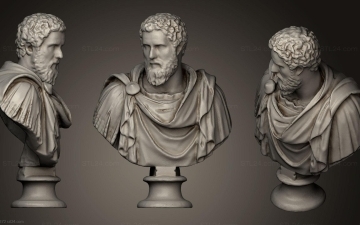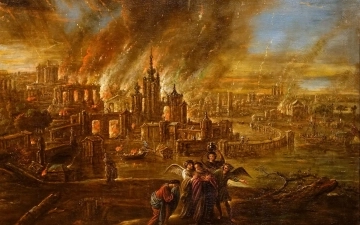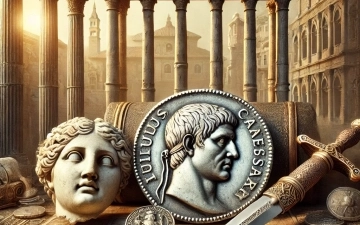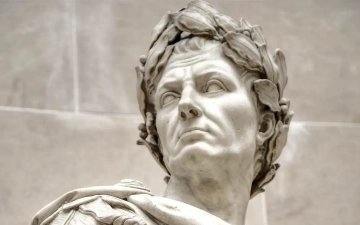Caligula: Madness and Infamy in the Roman Empire
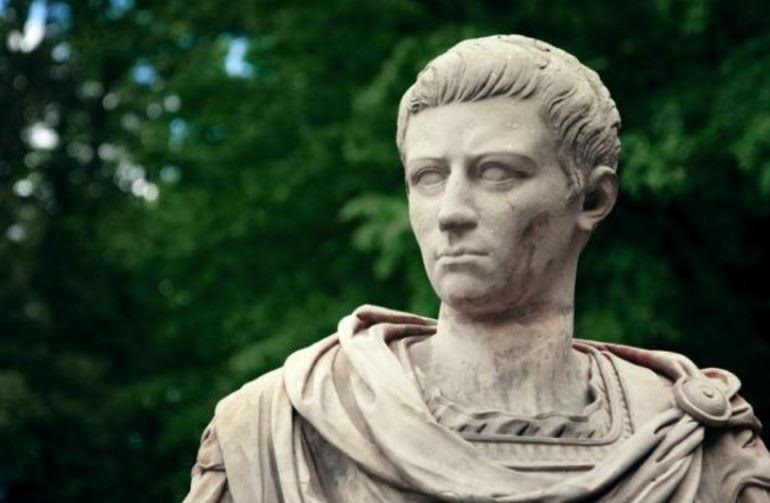
The name Caligula is synonymous with madness and infamy in the annals of Roman history. Gaius Julius Caesar Augustus Germanicus, known as Caligula, was the third Roman Emperor, and his tumultuous reign left an indelible mark of cruelty, debauchery, and tyranny. In this article, we delve into the life and notorious reign of Caligula, shedding light on the dark chapters of the Roman Empire.
Early Life and Rise to Power
Caligula was born in 12 CE to Germanicus, a prominent military commander, and Agrippina the Elder. His early years were marked by a close association with the Roman legions, earning him the nickname "Caligula" (meaning "little boot") due to the miniature military uniform he wore as a child.
After the death of his father and family members, Caligula found himself in a precarious situation. However, in 37 CE, the Praetorian Guard proclaimed him Emperor, bringing him to power at the age of 25.
The Early Years of Rule
Initially, Caligula's reign appeared promising. He showed early signs of political acumen and populism by increasing public games and restoring confiscated property. However, this façade of benevolence was short-lived.
Reign of Madness and Cruelty
Caligula's rule soon descended into madness and cruelty. His actions shocked even the morally desensitized Roman populace. Some of the most infamous deeds during his reign included:
- Repression and Exile: Caligula ruthlessly exiled, tortured, or executed perceived enemies, including senators and his own family members.
- Deification of Himself: He declared himself a god, demanding divine honors from his subjects.
- Lavish Extravagance: Caligula squandered the treasury on extravagant projects, such as building a floating bridge across the Bay of Baiae and constructing opulent palaces.
- Debauchery: His personal life was marked by debauchery and sexual excesses, further eroding his moral standing.
- Pervasive Fear: Citizens lived in perpetual fear of his unpredictable and violent outbursts.
Assassination and Legacy
Caligula's reign of terror came to an end in 41 CE when he was assassinated by a group of conspirators, including senators and members of the Praetorian Guard. His death was met with a mixture of relief and celebration by the Roman populace.
Caligula's legacy is one of infamy and madness. His reign serves as a stark reminder of the dangers of unchecked power and the potential for cruelty within a totalitarian regime. After his death, the Senate and Roman historians sought to erase his memory from history, illustrating the profound impact of his tyranny on the collective consciousness of Rome.
The reign of Caligula remains a dark and cautionary tale in the history of the Roman Empire. His name lives on as a symbol of the depravity and madness that can manifest in the corridors of power, serving as a stark contrast to the ideals of justice, order, and virtue that the Roman Republic and Empire aspired to uphold.
Related Posts
Didius Julianus: The Emperor Who Bought the Roman Empire
The year 193 AD was a tumultuous one for Rome. The assassination of the capable Pertinax plunged the empire into a crisis of leadership. The Praetorian Guard, the elite imperial bodyguards, found themselves without a master and, true to their corrupt nature, decided to auction off the imperial throne. In...
Read MoreSodom and Gomorrah: The Rise and Fall of Two Ancient Cities
Sodom and Gomorrah are two of the most infamous cities mentioned in ancient religious texts, notably the Bible. For centuries, they have symbolized divine judgment, moral depravity, and catastrophic destruction. Their story is told in the Book of Genesis, and echoes of their downfall reverberate through theology, archaeology, and mythology....
Read MoreJerusalem Artisan Rosaries Handcrafted vs. Mass-Produced
In a world full of fast-made products, many believers are looking for devotional items that feel faithful, lasting, and true. Jerusalem Artisan Rosaries Handcrafted vs. Mass-Produced is more than a comparison—it’s a prayerful question: “What will help me (or someone I love) stay close to Jesus day after day?” This...
Read MoreCaligula: Madness and Infamy in the Roman Empire
The name Caligula is synonymous with madness and infamy in the annals of Roman history. Gaius Julius Caesar Augustus Germanicus, known as Caligula, was the third Roman Emperor, and his tumultuous reign left an indelible mark of cruelty, debauchery, and tyranny. In this article, we delve into the life and...
Read MoreUnearthing History: Julius Caesar’s Artifacts and Their Significance
Julius Caesar, one of the most renowned figures of Roman history, left an indelible mark on the ancient world. His military conquests, political reforms, and dramatic death have made him a central figure in historical and archaeological studies. Although Caesar lived over two millennia ago, numerous artifacts associated with his...
Read MoreAugustus: The Architect of Imperial Rome’s Golden Age
In the grand tapestry of ancient Rome's history, one name stands out as a pivotal figure who played a transformative role in shaping the destiny of an empire. That name is Augustus, the first Roman Emperor, whose reign marked the beginning of a remarkable era known as the Pax Romana...
Read More

















